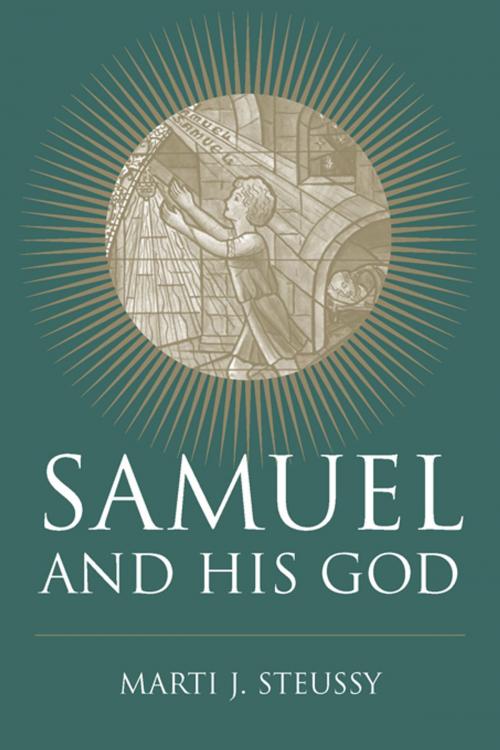Samuel and His God
Nonfiction, Religion & Spirituality, Bible & Bible Studies, Old Testament, Biographies| Author: | Marti J. Steussy, James L. Crenshaw | ISBN: | 9781611172225 |
| Publisher: | University of South Carolina Press | Publication: | May 17, 2013 |
| Imprint: | University of South Carolina Press | Language: | English |
| Author: | Marti J. Steussy, James L. Crenshaw |
| ISBN: | 9781611172225 |
| Publisher: | University of South Carolina Press |
| Publication: | May 17, 2013 |
| Imprint: | University of South Carolina Press |
| Language: | English |
Samuel and His God explores the relationship among a prophet, his deity, and their people in 1 Samuel. Marti J. Steussy illumines the vexing elements central to this multifaceted narrative and probes the questions it raises, particularly with regard to the authoritative voice of Samuel, of God as portrayed in this account, of the narrator or narrators, and of the Bible itself. In this sense, Samuel becomes a case study in how the Bible's authors use stories to argue for who may speak for God. In the biblical account, Samuel hears the Lord's calling as a boy, becomes a servant to the priest Eli, and later becomes Eli's successor. As a leader of the people of Israel and a conduit for God's message, Samuel is a figure of immense authority, ultimately anointing the first two kings of Israel, Saul and David, and thus precipitating the transformation of Israel from a collection of tribes into a nation under a monarchy. But in biblical and historical portrayals of Samuel's interactions with his God, their people, and these early kings, the narratives introduce significant discontinuities and disruptions, most famously with respect to the question of whether kingship came to Israel as a sinful human initiative or as a divine gift. Steussy takes up the challenge of helping readers grapple with the possibility that a multitude of storytellers representing disparate agendas may be responsible for aspects of Samuel's tale, and this makes mapping the cumulative story a problematic but revealing task. The relationship between Samuel and God is often contentious, and Samuel is presented as an irascible and ambitious character whose own stakes in his community at times govern how he interprets and represents his relationship to his God. Steussy's close readings negotiate the plethora of viewpoints to be found here—those of the narrator(s), the characters, and other scholars of Samuel's story.
Samuel and His God explores the relationship among a prophet, his deity, and their people in 1 Samuel. Marti J. Steussy illumines the vexing elements central to this multifaceted narrative and probes the questions it raises, particularly with regard to the authoritative voice of Samuel, of God as portrayed in this account, of the narrator or narrators, and of the Bible itself. In this sense, Samuel becomes a case study in how the Bible's authors use stories to argue for who may speak for God. In the biblical account, Samuel hears the Lord's calling as a boy, becomes a servant to the priest Eli, and later becomes Eli's successor. As a leader of the people of Israel and a conduit for God's message, Samuel is a figure of immense authority, ultimately anointing the first two kings of Israel, Saul and David, and thus precipitating the transformation of Israel from a collection of tribes into a nation under a monarchy. But in biblical and historical portrayals of Samuel's interactions with his God, their people, and these early kings, the narratives introduce significant discontinuities and disruptions, most famously with respect to the question of whether kingship came to Israel as a sinful human initiative or as a divine gift. Steussy takes up the challenge of helping readers grapple with the possibility that a multitude of storytellers representing disparate agendas may be responsible for aspects of Samuel's tale, and this makes mapping the cumulative story a problematic but revealing task. The relationship between Samuel and God is often contentious, and Samuel is presented as an irascible and ambitious character whose own stakes in his community at times govern how he interprets and represents his relationship to his God. Steussy's close readings negotiate the plethora of viewpoints to be found here—those of the narrator(s), the characters, and other scholars of Samuel's story.















